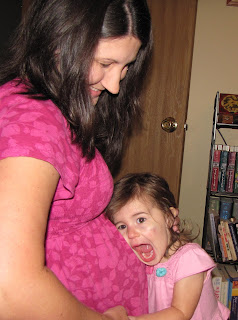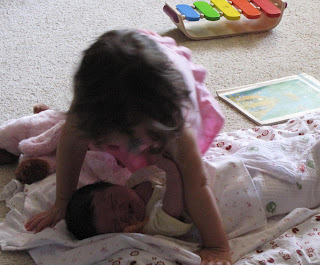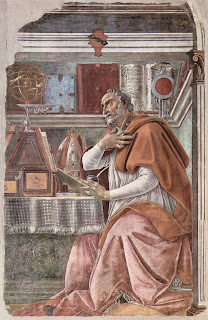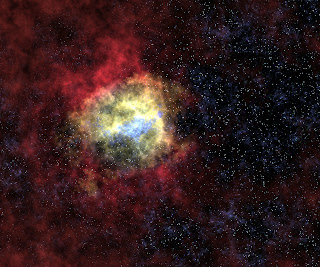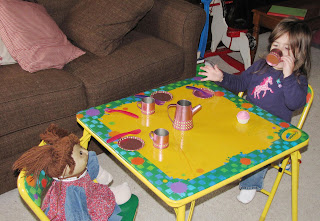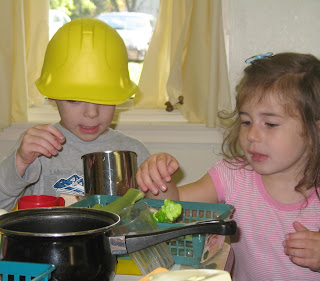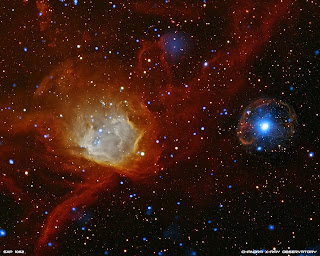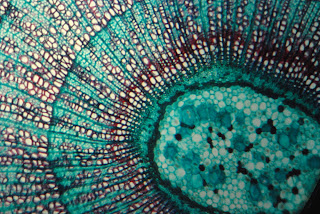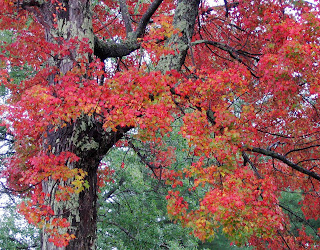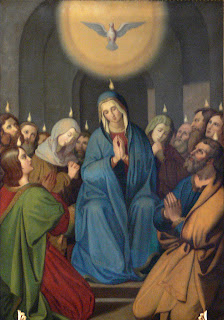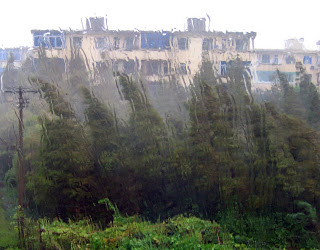Vivid
Photographs of Love
Our Sacred Imagination (part two)
Could we continue the conversation about making our imaginations sacred?
I love the idea of nurturing my children’s imaginations to be used for God.
Imagination is beautiful. The way in which we use our imagination makes it sacred.
I was reading Isaiah 6, the chapter in which Isaiah receives his call from God, and I saw something I hadn’t noticed before.
Before Isaiah gives his famous plea, “Here am I. Send me!”, even before God calls for someone to go for Him, Isaiah is given a vision of God on His throne.
I saw the Lord seated on a throne, high and exalted, and the train of His robe filled the temple.
Do you see it?
The vision preceded the call.
The vision of God is what changed Isaiah, what inspired him to take on the enormously difficult task of delivering God’s message.
Vision requires imagination. Sacred imagination.
Too often we want to go straight to the take-away, straight to our to-do list.
Instead, perhaps we should pause. Let God inspire us and change our hearts by filling our imaginations with a vision of Him.
Have you heard of lectio divina? I heard it mentioned in a Mars Hill interview recently, so I started digging for information.
It is the practice of Scripture reading, meditation and prayer intended to promote communion with God and to increase the knowledge of God’s Living Word. It was practiced by church fathers such as Ambrose and Augustine.
Meditative contemplation. Find a quiet space and something on which to focus. Scripture, something visual like nature or art, anything will do.
Contemplate God. Let the vision of who God is fill up your imagination. It is only the glimpse of the glory of God that can truly change us and give us what we need to fulfill whatever task has been asked of us.
God makes sacred our imaginations by filling us with a glimpse of Himself that changes us forever.
…among the lampstands was someone “like a son of man,” dressed in a robe reaching down to his feet and with a golden sash around his chest. His head and hair were white like wool, as white as snow, and his eyes were like blazing fire. His feet were like bronze glowing in a furnace, and his voice was like the sound of rushing waters. In his right hand he held seven stars, and out of his mouth came a sharp double-edged sword. His face was like the sun shining in all its brilliance. ~ Revelation 1
…there before me was a throne in heaven with someone sitting on it. And the one who sat there had the appearance of jasper and carnelian. A rainbow, resembling an emerald, encircled the throne…From the throne came flashes of lightening, rumblings and peals of thunder…”Holy, holy, holy is the Lord God Almighty, who was, and is, and is to come”…They lay their crowns before the throne and say: “You are worthy, our Lord and God, to receive glory and honor and power, for you created all things, and by your will they were created and have their being.” ~ Revelation 4
art credits: St. Augustine by Sandro Botticelli; Nebula by Dez Pain
Our Sacred Imagination (part one)
“Take a drink, Mommy!”
My eldest daughter offers me a sip from her little tin tea cup.
“Mmmm! Delicious! What is it?”
“Applesauce. I made it myself.”
I love watching my eldest’s imagination blossom and flourish. Already, her younger sister is joining in the pretend play, offering me a bite from her fork or a sip from her cup.
Our imaginations are a beautiful gift from God.
Imagination helps us to create inviting homes, solve difficult problems, invent new ways of doing things, build beautiful buildings, plan delicious gardens, come up with ways of serving others.
Imagination is what allows us to create…anything.
But does it belong in our God-life? Does imagination belong in our prayer, our Bible reading, our relationship with our Father?
Many would say no. Many would say that using our imagination when it comes to Scripture or to God is dangerous, allowing our own selves to take precedence over what God has spoken.
When God looked at what He had made, His earth and His man, He declared it to be good. Very good.
I presume that He did not mean “it is all very good except for that imagination piece of man’s soul”. In fact, God asked Adam to use his imagination right away when He asked him to give names to all of the animals.
Our imagination, along with everything else in our lives, is to be made sacred.
How? How can we use our imagination in our God-life in a way that is good and sacred?
In his book, Resounding Truth, Jeremy Begbie says that using imagination is required when thinking through issues of theology. He is quick, of course, to offer the qualification that
this is not an invitation to uncontrolled fantasy or fiction, as if we should conjure up ideas out of thin air. By imagination here I am speaking of the ability to perceive connections between things that are not spelled out, not immediately apparent on the surface, as well as between what we see now in the present and what we could or will see in the future.
Begbie says that our imagination should be applied to our reading of Scripture:
…trying to perceive broad patterns and unifying threads and to be alert to the themes and counter-themes that crisscross its pages and that together throw into relief guiding convictions about who this Creator God is, what kind of world He has created and relates to, and what our place within this world might be.
He also says that imagination helps us to discern connections between what we perceive in the world and what we perceive in Scripture.
One more aspect of what I wrote about last week!
The third way that Begbie discusses the sacred use of imagination is in living in and living out the connections between Scripture and the world:
The Bible does not spell out the details of Christian behavior for all times, prescribing exact courses of action for every circumstance…Because not all is given to us now, imagination is needed. The church needs to improvise imaginatively – that is, to be so schooled in these texts and scriptural tradition that it can…act in ways that are true to the texts yet engage with the world as it now is, responding in ever fresh and fruitful ways to whatever life throws at us.
What do you think of these ideas? Are these sacred ways of using our imagination or is this too dangerous, having too much potential for abuse?
Science, Faith, and Fear
Why are so many Christians afraid of science?
So many Christians get incredibly defensive and angry when it comes to debates and discussions about science, particularly when our origin is the topic under scrutiny. People will argue fiercely and loudly against theories such as evolution or big bang cosmology.
Some would even go so far as to state that Christians cannot also be scientists.
Why do we get so defensive and angry?
Fear.
While most would not admit it, many are, deep down inside, afraid that if such theories are true than their God does not exist. They fear that God is unable to defend Himself and so they get angry in order to drive out their fear.
For you did not receive a spirit that makes you a slave again to fear, but you received the Spirit of sonship.
I have fear too.
I am afraid that this divide between Christians and science is driving people away from our faith rather than drawing them in.
How can we possibly think that science could destroy God? How can we believe that science could ever come up with a truth that would cause God to cease to exist?
We worship and serve God Who is Truth and science cannot help but point to Him.
Perhaps part of the trouble is that Christians have mistaken the purpose of science.
Science tries to figure out how things work. Science does not give ultimate explanation for the origin and existence of the universe or answer questions concerning the purpose of the universe or of our existence.
What if evolution is true? What if the big bang theory is true? Does that take God out of the picture at all?
God created our universe. The Bible is clear on that point.
As Richard T. Wright writes in Biology Through the Eyes of Faith:
Whether you believe that His gifts were bestowed at the outset of creation, or periodically over time, or all at once recently, you should see design in what He has done. What we see doesn’t prove His existence, but it does point people in the right direction, and for Christians, what we see and learn should cause us to thank Him and give Him the glory for such a wonderful creation.
Why should we fear science when science can give us more and more insight into how beautiful and complex is God’s design? Science doesn’t deny God, science glorifies God!
God reveals Himself through His Word:
All Scripture is God-breathed and is useful for teaching…
God also reveals Himself through His created world:
For since the creation of the world God’s invisible qualities – His eternal power and divine nature – have been clearly seen, being understood from what has been made, so that men are without excuse.
Why do we try to throw out one of His revelations?
At the end of one of his papers, the biologist David Wilcox says this:
In our speculations, we must be limited by God’s self-revelations – both by Scripture and in His created world. As we seek to be guided by these two sources of truth, let us humbly acknowledge that our interpretations of both sources of knowledge are worldview guided and fallible. We will always need to be guided – and corrected – by the Spirit of Truth, in science or in theology. And when we get home…won’t we have a good laugh at ourselves?!
Perhaps we should trust God. Trust that He is able to defend Himself, trust that He is Truth and that science can never knock Him off His throne.
Whether you believe that the earth is young or old, whether you believe that we humans were created in one day or over billions of years through evolution, when we have debates and discussions with other Christians and with non-Christians, please remember that the most important thing to God is not our origin but that we love Him and love each other.
It is not wrong to have your opinion, to study science and debate with others about various issues, but don’t fear those who disagree–love them. In the end, our love and respect, our willingness to listen and prayerfully consider new ideas is a much stronger way to show Jesus to the world around us than attacking others or becoming defensive out of fear.
…But perfect love drives out fear…
Over the years, I have realized that even though it is necessary to look at these origins issues and problems, the more important problems are those that are facing us today as we try to learn how to take care of the creation and how best to use its gifts. (If God were to ask us a question about His Creation,) would He ask us what we thought about how He made the world, or would He ask us what we did with it?
Be Still and Wait
In Christ All Things Hold Together
I think about God’s creation quite frequently this time of year.
The trees are aflame, the air is crisp and cool, and we are watching our farmer neighbors harvesting the fields.
I’ve also been thinking about Colossians 1:
For by him (Christ) all things were created: things in heaven and on earth, visible and invisible, whether thrones or powers or rulers or authorities; all things were created by him and for him. He is before all things, and in him all things hold together.
I’ve especially been thinking about that last phrase: in Him all things hold together.
I look up the verb for “hold together” in my Strong’s and find that it is “sunistao” or ” sunistemi” which has connotations of “strengthened…to set together…to stand with”.
It is a present tense verb: Christ is currently and actively holding all things together.
I am intrigued and try to consider this idea more thoroughly.
I tend to view creation as neutral, as separate from heaven. I often see creation as something that points to God but not as something that participates with God.
I think that many people see creation as having been made or set into motion by God but now is on its own.
In Him all things hold together.
I often hear people talk about having a Christian perspective on creation, especially when conversing about the need to care for the earth. Even that sort of language implies that creation is neutral and needs for Christ-followers to imbue it with godly meaning.
Yet if Christ is right now holding all things together, then perhaps that means that there is something deeper, something sacred behind all created things.
According to Hans Boersma in a recent Mars Hill Audio Journal interview, that is certainly what Christians believed for more than a millennium after Christ: Just as you wouldn’t simply read the text of the Bible without seeking something deeper, something sacred behind the words, you shouldn’t simply look at creation without seeking something sacred behind the created thing.
Just as Christ is the logos, the Word of God, that is behind the Holy Words of Scripture, so, according to Colossians 1, Christ is also behind the created world, holding all things together.
I am only a stay-at-home mommy. I don’t pretend to know a whole lot.
I do know that modernity has enlightened us to many realities about the world around us.
Perhaps, just perhaps, it has blinded us to some of the deeper realities as well.
Would you continue the conversation in the comments below? What do you think? Is there something deeper and sacred behind created things or is creation now neutral, only pointing to God rather than right now participating with God in its renewal?
When I fear being led by the Spirit
I overheard my eldest last week: “God loves me and Jesus loves me.”
“And the Holy Spirit loves you”, I gently prompted.
She dutifully repeated, “And the Holy Spirit loves me.”
Already. Already she is leaving out the Holy Spirit when she thinks about our Triune God.
I know that a large part of the reason for this is that I have a hard time remembering to include the Spirit when I speak about God. But why?
Why is it that the Holy Spirit is so difficult for me to understand? It is, of course, impossible to truly know any part of the Three-In-One, but why is the Spirit so much more…mysterious?
I began to think about this, to read and study.
It seems, as I begin to search out what God says about His Spirit, that we should be hugely excited about the Holy Spirit rather than feeling awkward or embarrassed whenever someone talks of Him.
Jesus tells His disciples:
But I tell you the truth: It is for your good that I am going away. Unless I go away, the Counselor will not come to you; but if I go, I will send him to you. ~ John 16.7
The Holy Spirit is even better than having Jesus physically walking beside me through life? Why do I find that so difficult to understand and believe?
Part of my difficulty is that I truly don’t understand the Spirit. I don’t understand how He works in me or what He really does.
I continue reading, searching for some insight.
In Resounding Truth by Jeremy Begbie, I read this:
…while Christ is undoubtedly the one in whom diverse things cohere and relate in their diversity, is not the Spirit the agent of diversity, and as such the one who particularlizes things in their difference – that is, enables them to become more particularly themselves? … Or Paul in I Corinthians 12: the Spirit gives different gifts to different people, enabling each to flourish…the Spirit enables all things to be what they were particularly created to be, to praise God in their own fashion.
Elsewhere, he writes that
It is the Spirit’s role, as life-giver and transformer, to bring about here and now among us the conditions of the new age, in advance of its final and full coming. The Spirit previews the future.
Bringing about the conditions of the new age. That is truly exciting!
Clearly, there is much more to be learned, much more to the Spirit’s role in God’s kingdom…but that could fill up many books, and this is simply one essay.
As I think through this, it seems that my other main difficulty is paradoxical. I fear both that God will not answer my prayer for more of the Holy Spirit’s fruit in my life…and that He will answer my prayer for more of His Spirit!
In his book, Forgotten God, Francis Chan says
I think the fear of God failing us leads us to “cover for God”. This means we ask for less, expect less, and are satisfied with less because we are afraid to ask for or expect more…I can’t imagine how much it pains God to see His children hold back from relationship with the Holy Spirit out of fear that He won’t come through.
Jesus tells His disciples:
If you then, who are evil, know how to give good gifts to your children, how much more will the heavenly Father give the Holy Spirit to those who ask him! ~ Luke 11.13
Chan also says this:
What if God does show up but then asks you to go somewhere or do something that’s uncomfortable? … The truth is that the Spirit of the living God is guaranteed to ask you to go somewhere or do something you wouldn’t normally want or choose to do. The Spirit will lead you to the way of the cross, as He led Jesus to the cross, and that is definitely not a safe or pretty or comfortable place to be. The Holy Spirit of God will mold you into the person you were made to be.
As I think carefully about the implications of all of this added to everything else I’ve learned while studying about the Spirit, I have decided to say “yes”.
Yes, give me more of the Holy Spirit’s fruit in my life.
Yes, make me into the person I was made to be.
Yes, use me to impact the world around me.
I admit to God that I am afraid. Yet even in this fear, I am comforted by the knowledge that God is in me, to change me and help me. I am comforted by knowing that this is a process for my life, not a whiplash-like instant change. I am comforted by the Holy Spirit.
Because you are sons, God sent the Spirit of his Son into our hearts, the Spirit who calls out, “Abba, Father.” So you are no longer a slave, but a son; and since you are a son, God has made you also an heir. ~ Galations 4.6-7
These verses speak an amazing, beautiful truth…This is one of the precious gifts the Holy Spirit gives us. He assures us that we are in right standing with and loved by God…He assures us that we have nothing to fear because we are His children and He is powerful…And He reminds us of the victory that is coming when God’s kingdom is fully realized. ~ Francis Chan
Holy Spirit, please teach me, change me, show me. I want to be led by You.
For you did not receive a spirit that makes you a slave again to fear, but you received the Spirit of sonship. And by him we cry, “Abba, Father.” The Spirit himself testifies with our spirit that we are God’s children. Now if we are children, then we are heirs – heirs of God and co-heirs with Christ, if indeed we share in his sufferings in order that we may also share in his glory. ~ Romans 8.15-17
credit for art: Holy Spirit stained glass; Holy Spirit tongues of fire
The Wonder of Learning
Education is the atmosphere we breathe, the envelope of wonder that surrounds us, held by the gravity of our daily habits. ~ Ann Voskamp of A Holy Experience
For in Him we live and move and have our being. ~ Acts 17.28
And daub their natural faces unaware
More and more, from the first similitude.
~Elizabeth Barret Browning
We can begin by regularly reminding ourselves that the God who saves us is the God who made us and all things, that our message of redemption only makes sense in the context of the bigger story about creation. Our God cares about all aspects of our lives, and thus the renewing of our minds is as needful as the cleansing of our hearts.
Loving God and neighbor requires knowledge of the truth about God and the truth about the many challenges and opportunities of human experience in the world God has made.
Oh. There are two different words used in this first chapter of II Peter.
The first one, the word that gives us grace, peace, everything we need, is epignosis (precise/correct knowledge) which is related to epiginosko (to become thoroughly acquainted with, to know thoroughly, to perceive who a person is).
Relationship knowledge.
The second word, the word that Peter urges us to add to our faith along with goodness, self-control, perseverance godliness, brotherly kindness and love? This word is gnosis (general intelligence, understanding, implying science).
Creation knowledge.
Aha.
Once again, all is related, all is woven together into one beautiful, seamless fabric.
Learning, gaining knowledge, is a large part of how we weave the various parts of our lives together into a seamless, sacred whole. Not something to be relegated to school-type hours.
We seek for epignosis, to become thoroughly acquainted with God, so that we may have everything we need for life and godliness.
We seek for gnosis, general understanding about the world He has created, so that we may keep from being ineffective and unproductive in our epignosis of our Lord Jesus Christ.
May we remain in awe of God and retain our sense of wonder in the world (including its creatures, human and otherwise) He has created. May we continue to pursue knowledge in every moment of our daily lives and turn that knowledge into praise and thanksgiving, into loving of all those around us.
art credit: Elizabeth Barrett Browning; Christ in the House of Martha and Mary by Johannes Vermeer
